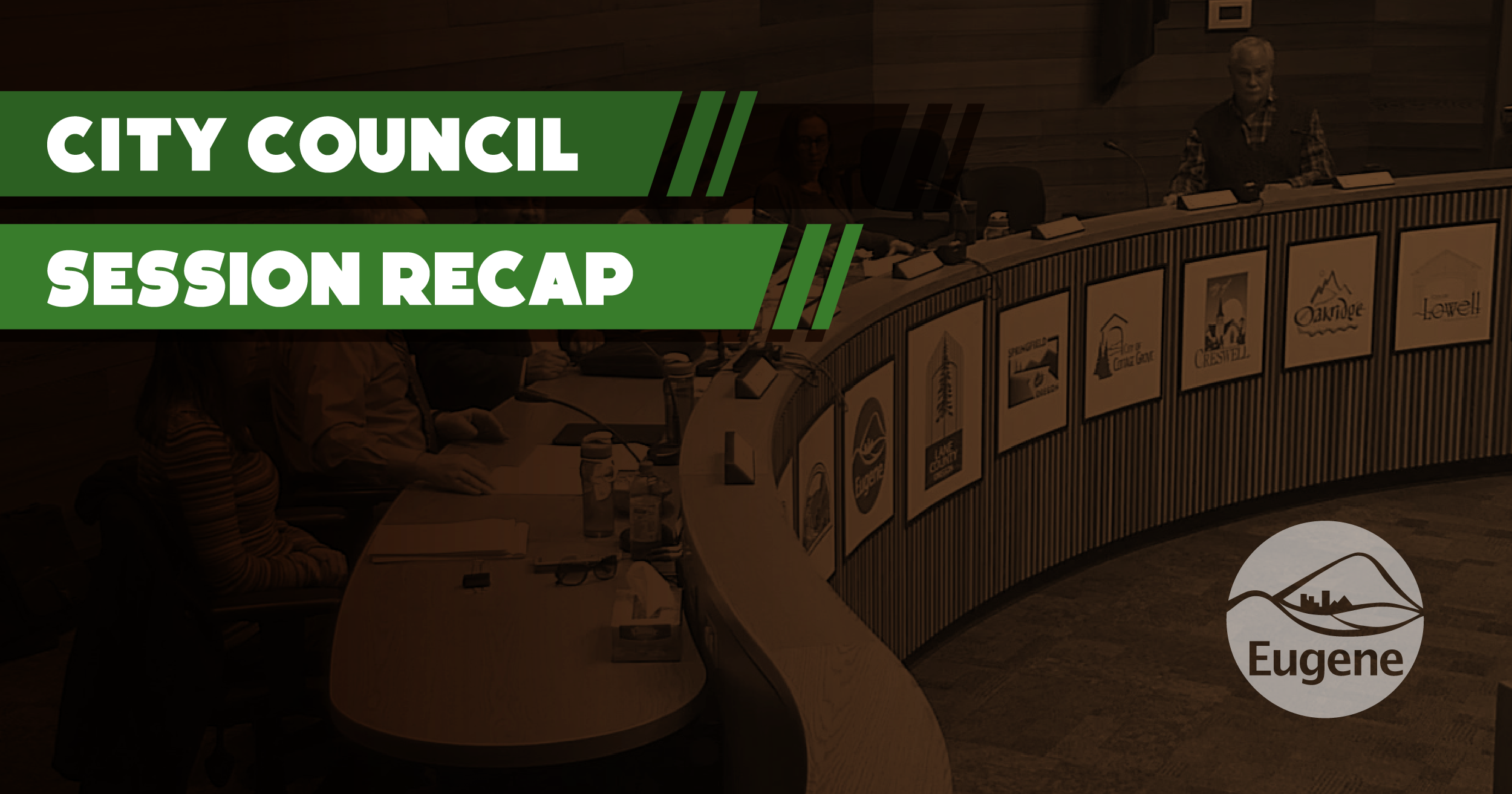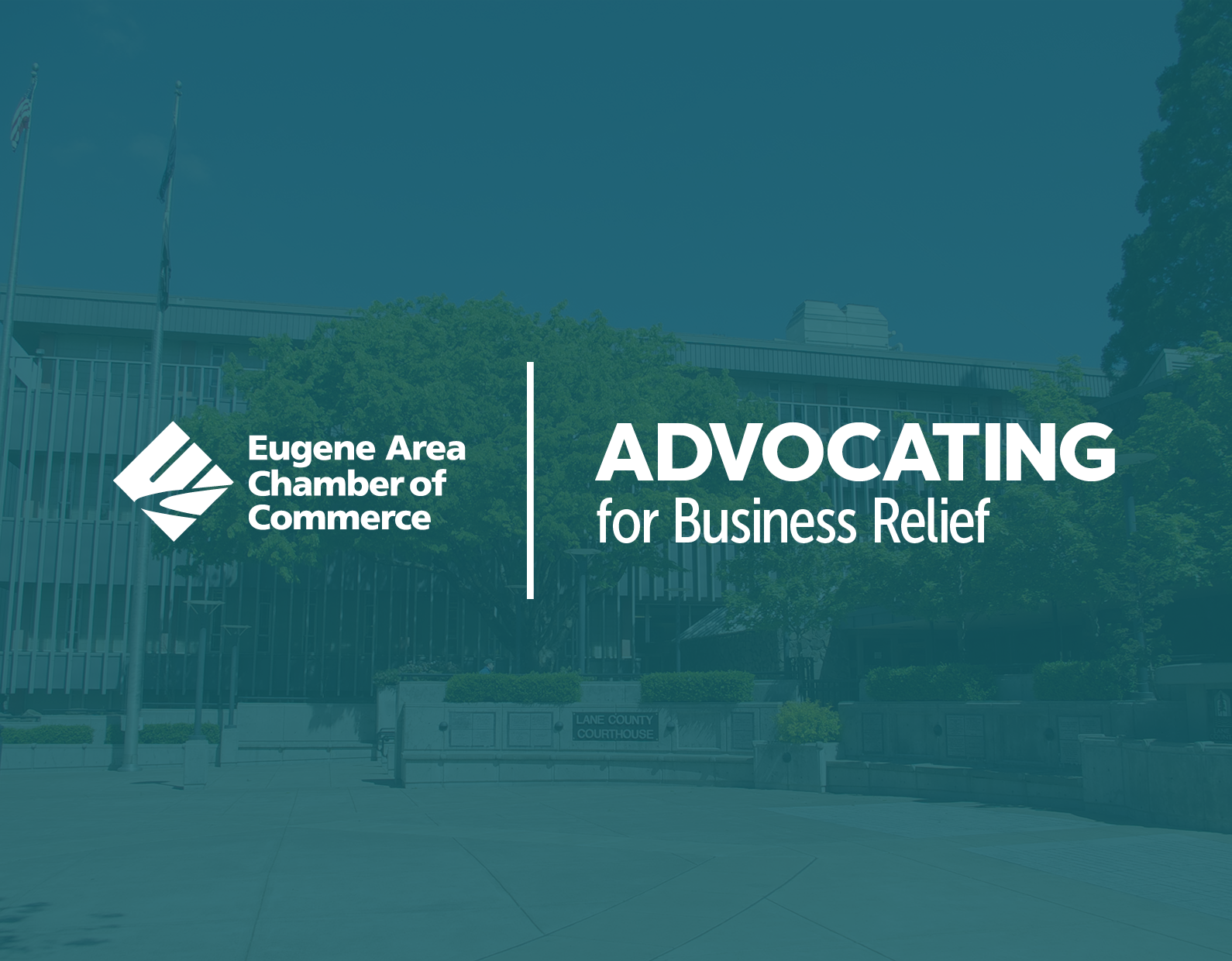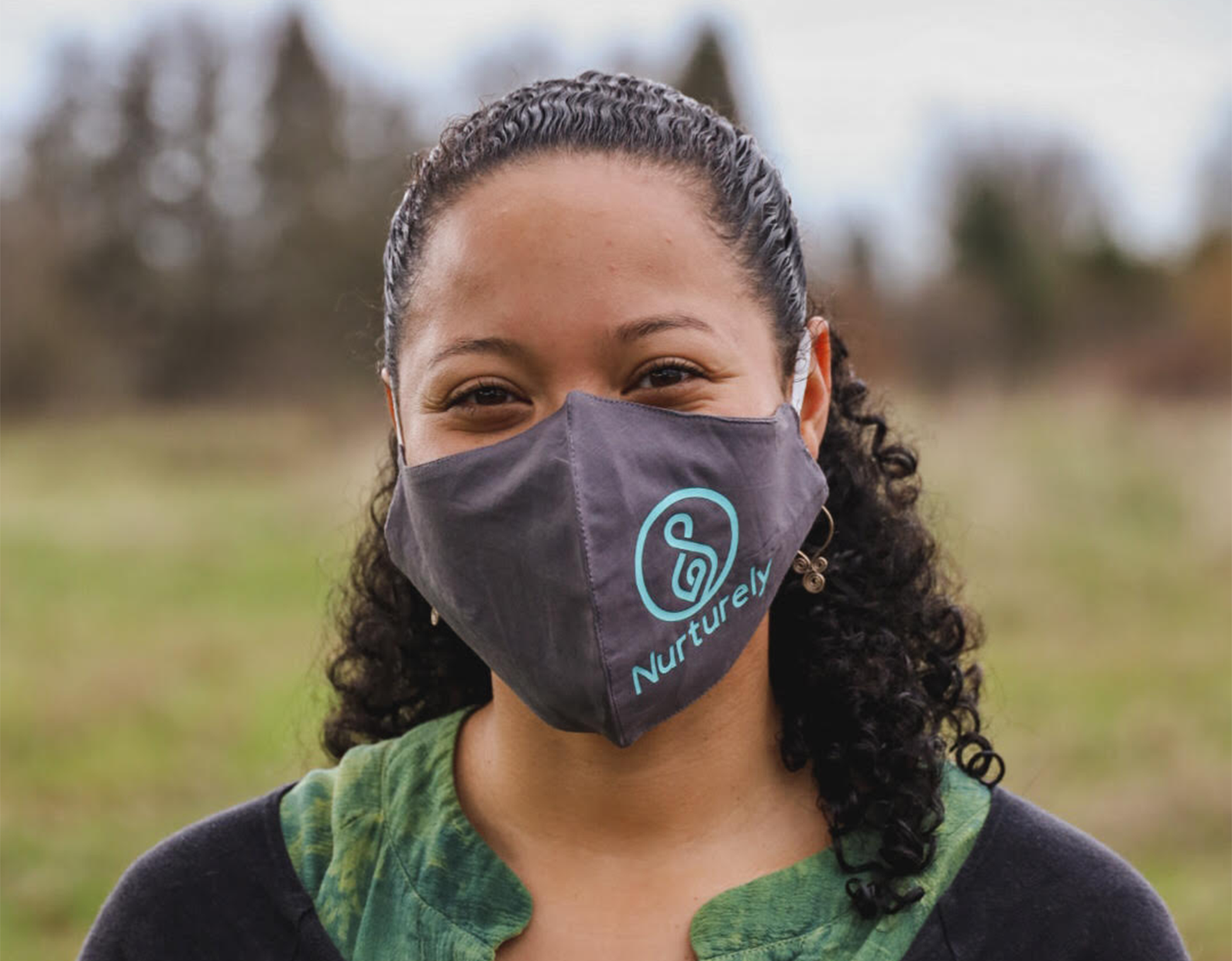
Feature
Eugene City Council Update
article by Samantha Roberts | Director of Business Advocacy
The Eugene Area Chamber of Commerce has been hard at work this year representing our business community on a variety of issues taken up by the Eugene City Council. As we gather steam for the final few months of 2022, here is a look back on major issues we’ve addressed that impact local businesses like yours.
In particular, we highlight two areas our members expressed as priorities in the Fall 2021 Member Survey: housing and homelessness, as well as an emerging area of concern – climate policy. The Chamber was also actively engaged in council conversations pertaining to economic development, transportation, and more.
Many of these issues will continue at the Council table into the Fall. We will keep you apprised of these changes and encourage you to reach out if you have questions about impacts to your business.
Homelessness
Addressing our local crisis remains a top priority for the Eugene Chamber as we engage our Business Leaders Task Force On Homelessness and keep an eye on upcoming policies impacting business needs in Eugene.
The Eugene City Council voted in July to extend an ordinance allowing Safe Sleep Sites, a group of sites around Eugene which includes tent sites and car camping. These sites provide stabilization for up to 300 people; without this extension, they would be back on the street without a safe or legal place to be, often on the doorstep of a local business owner.
The Eugene Chamber heard from leaders of our law enforcement community that these sites provide key stabilization needed to get our unhoused community off of the streets. While not a perfect solution, safe sleep sites offer members of our unhoused community a safe place to find rest while providing our local business owners respite from vandalism and trash.
Housing
A major piece of policy that Eugene City Council considered this past year is updating land use codes to allow for more “Middle Housing”, in part to address our current housing shortage. The Eugene Chamber of Commerce advocated in support of these Middle Housing code changes to encourage more housing in Eugene at a variety of price points and locations. While opposed by some, Chamber leadership supported this policy because of the dire need our community has for more housing, an issue exacerbated by outsized population growth and rising home prices.
Middle Housing Code Amendments were adopted by the City Council on May 24th by unanimous vote, sending a clear signal that our community is ready to do what it takes to build more housing.
Eugene’s City Council also took action to update regulations for rental properties. Referred to as Renter Protections, this body of work stems from 12 recommendations made by the Housing Policy Board in November 2021. These recommendations were developed to prevent displacement and increase access to housing by reducing costs for entry like those related to application fees and deposits.
The recommendations were broken out into three phases in March 2022, with Phase 1 actions approved prior to Council’s current summer break. Phase 2 actions will come back for consideration in October 2022, and are intended to be followed by a public hearing before December’s Council break. Phase 3 is scheduled to come back January 2023, with the intention of scheduling a public hearing some time after.
While well-intentioned, these recommendations were formed primarily from renter perspectives without considering impacts to landlords, or existing state legislation. Analysis conducted by the Eugene Chamber and MultiFamily NW (a regional advocacy agency) suggests that such regulations harm renters by increasing costs to housing and reducing local housing stock.
Due to the potential impacts to local renters, the Eugene Chamber opposed Phase 1 regulations as written, and advocated heavily for alternatives that would both protect local renters, while meeting local businesses needs. Despite this advocacy and expressed desire for right-sized solutions by local landlords, housing providers, and property managers, Phase 1 regulations were passed, in full, on July 11, with 6 council members in favor and 2 opposed. Regulations go into effect August 13th.
Phase 2 regulations will come back to the Eugene City Council for discussion in October 2022.
Climate Policy
While many business owners do not list climate change as a top 3 pressing issue for their business this year or even in the next 5 years, state and local governments are implementing major policy changes to reduce the amount of greenhouse gas emissions produced by both industry and residents.
While many business owners are at work handling the day-to-day issues related to their business, city officials are enacting policies that will affect how they use energy in their buildings, how they can build their buildings, what fuel they can use in their vehicles, and more.
Locally, the Eugene City Council has looked to reduce local greenhouse gas emissions in buildings by regulating fossil fuel infrastructure in new buildings and lowering greenhouse gas emissions in existing buildings. These changes could have major impacts on how businesses heat their spaces, heat their water, or cook food. The Eugene Chamber began following this conversation when City Council passed two motions in November 2021: first, to discuss a change in city code requiring electric-only new buildings by January 1, 2023, and the other to draft a roadmap to reducing greenhouse gas emissions in existing buildings, including rentals, by 2045.
Since these motions were approved, the Eugene Chamber has convened stakeholders, spoken with local business owners, met with City Councilors, and wrote in favor of smart policy that balances climate needs with local economic resilience in mind. We have had major concerns around the economic feasibility of such actions, especially in relation to existing state efforts to reduce greenhouse gas emissions across the region.
Ultimately, the Eugene City Council voted July 27th to:
- Draft an ordinance to prohibit fossil fuel infrastructure (natural gas) in new homes by June 2023 (this goes to public hearing in Fall 2022)
- Come back in Fall 2022 to discuss prohibiting natural gas and other fossil fuel infrastructure in all new commercial buildings, including a potential waiver process for buildings or uses that may not have feasible access to electric-only options.
- Formalize in the Climate Action Plan 2.0 the decarbonization of residential and, as feasible, commercial buildings by 2035 and industrial buildings by 2050.
- Return Fall 2022 with a proposal for engaging the community in developing a plan for the transition of buildings becoming decarbonized that has as its foundation social, environmental, and economic equity with emphasis on engagement of historically marginalized communities and their representatives
- Finally, prior to the drafting of a commercial electrification ordinance, the City Manager will engage the business community with an outreach process to discuss and solicit their input.
While these motions represent significant changes ahead, the Eugene Chamber, business community, and concerned residents successfully communicated to City Council the need to slow down, be thoughtful in their approach to policy making, and consider the impacts that local climate policy has on local businesses. Much work lies ahead as we engage with the local business community to support policies that hold a triple bottom line emphasis on economic resilience, social equity, and environmental stewardship.
How can we advocate for you? Email Samantha Roberts, Director of Business Advocacy











